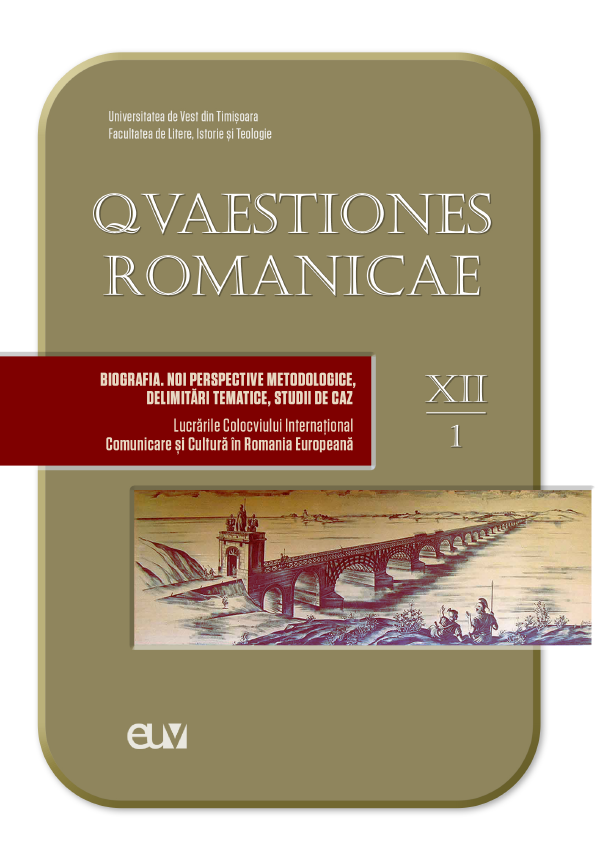«Quel che mi pare è che, se non altro, sarà un po’ diversa dalle altre vite proprie» L’analisi de I miei ricordi di Massimo d’Azeglio e della continuazione dell’autobiografia dazegliana di Giuseppe Torelli*
Abstract: (An analysis of Massimo d'Azeglio's I miei ricordi and of the Continuation of d'Azeglio's Autobiography by Giuseppe Torelli) In the Risorgimento, the autobiographical genre not only represented the leading figures of the period to the readers, but also acquired the socio-cultural function of reflecting on the historical, political, military and cultural events of the unification process. In his posthumous autobiography, I miei ricordi (1867), although apparently narrating his life and artistic-literary-political career, d’Azeglio makes use of digressions to express his thoughts on various Risorgimento themes and events. However, the work remained unfinished and Torelli, a friend and colleague of the author, attempted to complete it. The nine chapters added were published in 1870 in the volume Lettere di Massimo d’Azeglio a Giuseppe Torelli with fragments of this in continuation of Miei ricordi. The title refers to a hybrid work: an epistolary, an autobiography and a biography. The aim of this paper is to analyse the treated and concealed themes of the works, the differences between the autobiographical narrator of the Saint Augustine type and the Voltairean type, and the transition from the autobiographical to the biographical style. It is also examined whether Torelli, by adding the author’s non-autograph thoughts and fragments to the work, had given the novel a new meaning, as he dealt with certain themes that d’Azeglio probably wanted to conceal. It was precisely because of these added parts that Torelli’s work, like so many others in post-unification Italy, contributed to the realisation of the past so that a truly united Italian society and state could emerge. This has to do with the issue of collective memory that creates a cultural and moral framework through which the nation defines itself: this approach is fruitful in the analysis of d’Azeglio’s work and that of Torelli.
Keywords: Massimo d’Azeglio, Giuseppe Torelli, autobiography, collective memory.
Riassunto: Nel Risorgimento il genere autobiografico, oltre a rappresentare ai lettori i massimi esponenti dell’epoca, apprese la funzione socio-culturale di riflettere sugli eventi storici, politici, militari e culturali del percorso unitario. Nell’autobiografia postuma, I miei ricordi (1867), benché apparentemente venga narrata la vita e la carriera artistico-letterario-politica, d’Azeglio fa uso delle digressioni per esprimere i suoi pensieri su vari temi e eventi risorgimentali. Tuttavia l’opera rimase incompiuta e Torelli, amico e collega dell’autore, tentò di completarla. I nove capitoli aggiunti furono pubblicati nel 1870 nel volume Lettere di Massimo d’Azeglio a Giuseppe Torelli con frammenti di questo in continuazione dei Miei ricordi. Il titolo si riferisce ad un’opera ibrida: un epistolario, un’autobiografia e una biografia. L’obbiettivo dell’articolo è di analizzare i temi trattati e sottaciuti delle opere, le differenze tra il narratore autobiografico di tipo sant’agostiano e quello voltaireiano e il passaggio dallo stile autobiografico a quello biografico. Inoltre viene esaminato se Torelli, aggiungendo all’opera i pensieri e frammenti non autografi dell’autore, avesse dato un nuovo significato al romanzo, in quanto trattò alcuni temi che d’Azeglio probabilmente volle occultare. Proprio per queste parti aggiunte l’opera di Torelli, come tante altre dell’Italia postunitaria, contribuì a rendersi conto del passato affinché possa nascere una società e uno Stato italiano veramente unito. Un tale aspetto ha a che fare con la questione della memoria collettiva che crea un quadro culturale e morale tramite cui la nazione si definisce: questo approccio risulta fruttuoso nell’analisi dell’opera di d’Azeglio e quella di Torelli.
Parole-chiave: Massimo d’Azeglio, Giuseppe Torelli, autobiografia, memoria collettiva.
